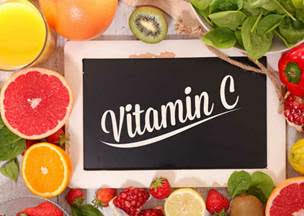One of the main reasons people take vitamin C supplements is to boost their immunity. It helps encourage the production of white blood cells, known as lymphocytes and phagocytes, which help protect the body against infections. It also helps white blood cells function more effectively while protecting them from damage by potentially harmful molecules, such as free radicals.
Vitamin C is an essential part of the skin’s defense system. It is actively transported to the skin where it can act as an antioxidant and help strengthen the skin’s barriers.

Vitamin C is a strong antioxidant that may reduce the risk of chronic disease. Vitamin C is a strong antioxidant that can strengthen your body’s natural defenses. Antioxidants are molecules that boost the immune system. They do so by protecting cells from harmful molecules called free radicals. When free radicals accumulate, they can promote a state known as oxidative stress, which has been linked to many chronic diseases. Consuming more vitamin C can increase your blood antioxidant levels by up to 30%. This helps the body's natural defenses fight inflammation.
It can help reduce blood pressure. Vitamin C helps lower blood pressure in those both with and without high blood pressure. In adults with existing high blood pressure, vitamin C supplements reduced systolic blood pressure by 4.85 mmHg and diastolic blood pressure by 1.67 mmHg, on average.
Vitamin C can help fight heart disease risk factors. Vitamin C helps reduce heart disease risk factors such as high blood pressure, high levels of “bad” LDL cholesterol, low levels of “good” HDL cholesterol and triglyceride levels.
It helps prevent iron deficiencies by improving iron absorption. Iron is an important nutrient that has a variety of functions in the body. It is essential for making red blood cells and transporting oxygen throughout the body.
Vitamin C supplements can help improve the absorption of iron from the diet. Vitamin C assists in converting iron that is poorly absorbed, such as plant-based sources of iron, into a form that is easier to absorb. This is especially useful for people on a meat-free diet, as meat is a major source of iron. In fact, simply consuming 100 mg of vitamin C may improve iron absorption by 67%.
For more information about which food contain Vitamin C, click here.

